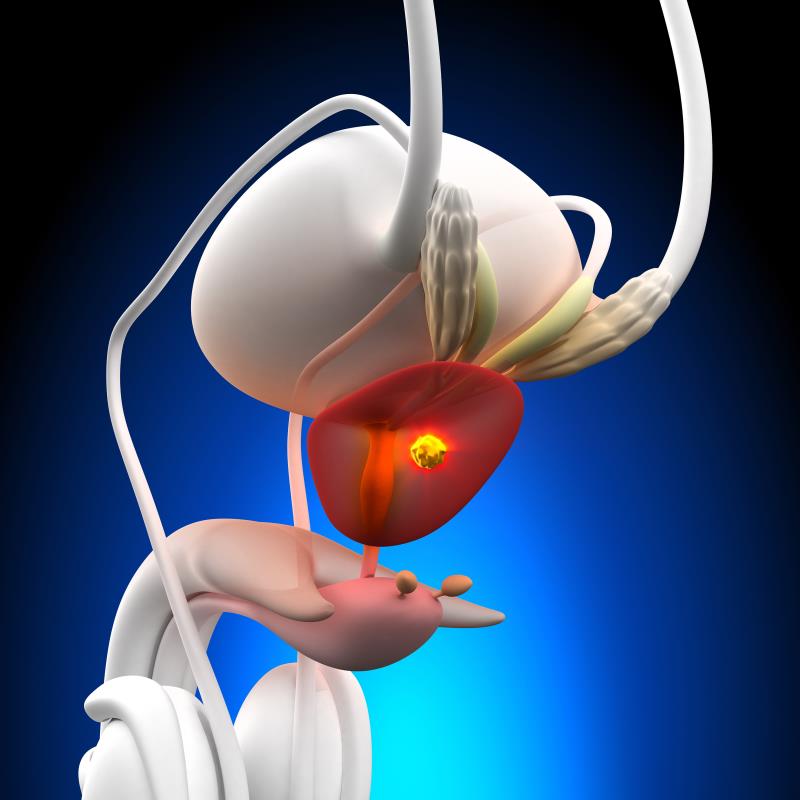Enzalutamide-ADT extends OS in nmCRPC





The addition of enzalutamide to androgen deprivation therapy (ADT) improved overall survival (OS) in men with nonmetastatic castration-resistant prostate cancer (nmCRPC), demonstrated the phase III PROSPER* trial.
“In patients with nmCRPC, enzalutamide treatment resulted in a clinically meaningful and statistically significant 27 percent lower risk of death than placebo,” said Dr Cora Sternberg from Weill Cornell Medicine, New York, US, at ASCO20.
“[This demonstrates] that initiation of [enzalutamide-ADT] before the onset of detectable metastasis improves OS in men with CRPC and rapidly rising PSA**,” said Sternberg and colleagues.
Participants were 1,401 men with nmCRPC (baseline PSA levels ≥2 ng/mL and doubling time ≤10 months) who were randomized 2:1 to receive enzalutamide (160 mg/day; median age 74 years) or placebo (median age 73 years) plus ADT during a double-blind phase. After the primary analysis in 2017, placebo recipients could receive enzalutamide 160 mg/day during an optional open-label extension phase. Enzalutamide and placebo recipients were treated for a median 33.9 and 14.2 months, respectively.
After a median follow-up of 48 months, the enzalutamide-ADT combination improved OS compared with placebo-ADT (median 67.0 vs 56.3 months; hazard ratio [HR], 0.73, 95 percent confidence interval [CI], 0.61–0.89; p=0.001). [ASCO20, abstract 5515; N Engl J Med 2020;382:2197-2206]
This improvement was consistent across subgroups including baseline age and PSA or lactate dehydrogenase levels, except for baseline use of bone-sparing agents. However, further research is necessary with this finding due to the small number of patients who used these agents.
Enzalutamide-ADT also delayed time to first subsequent antineoplastic therapy compared with placebo-ADT (median 66.7 vs 19.1 months; HR, 0.29, 95 percent CI, 0.25–0.34; p<0.001), with 33 percent vs 65 percent of enzalutamide vs placebo recipients on subsequent antineoplastic therapy (primarily abiraterone acetate and docetaxel in placebo and enzalutamide recipients, respectively).
These results add to the previously demonstrated significantly extended metastasis-free survival (MFS) with enzalutamide-ADT vs placebo-ADT (median 36.6 vs 14.7 months; HR, 0.29), time to use of first subsequent antineoplastic therapy (median 39.6 vs 17.7 months; HR, 0.21), and time to PSA progression (median 37.2 vs 3.9 months; HR, 0.07; p<0.001 for all). [N Engl J Med 2018;378:2465-2474]
“[The present findings also] provide clinical validation for the use of MFS as a meaningful end point and as a potential surrogate for OS among patients with nmCRPC,” noted the authors. “[All-in-all, these] results add to the growing body of evidence that androgen-receptor inhibitors not only delay the time to metastasis but also improve OS among men with nmCRPC,” they said.
Adverse events (AEs) were consistent with the established safety profile of enzalutamide, noted Sternberg. Grade ≥3 AEs occurred in 48 and 27 percent of enzalutamide-ADT and placebo-ADT recipients, respectively (17 vs 20 per 100 patient-years), while serious AEs occurred in 40 and 22 percent, respectively (14 vs 16 per 100 patient-years).
AEs led to treatment discontinuation in 17 and 9 percent of enzalutamide-ADT and placebo-ADT recipients, respectively (6 per 100 patient-years for both groups), and to death in 5 and 1 percent, respectively. AE-related deaths in the enzalutamide-ADT group were mainly cardiovascular-related and most of these men had a history of cardiovascular disease (CVD). The most frequently reported AEs in the enzalutamide-ADT group were fatigue and musculoskeletal events (46 and 34 percent, respectively). Fractures (18 percent vs 6 percent) and falls (18 percent vs 5 percent) occurred more frequently in the enzalutamide-ADT vs placebo-ADT groups.
While none of the CVD deaths were deemed enzalutamide-related, the authors recommended that physicians consider a patient’s CVD history prior to prescribing enzalutamide, with close follow-up warranted.